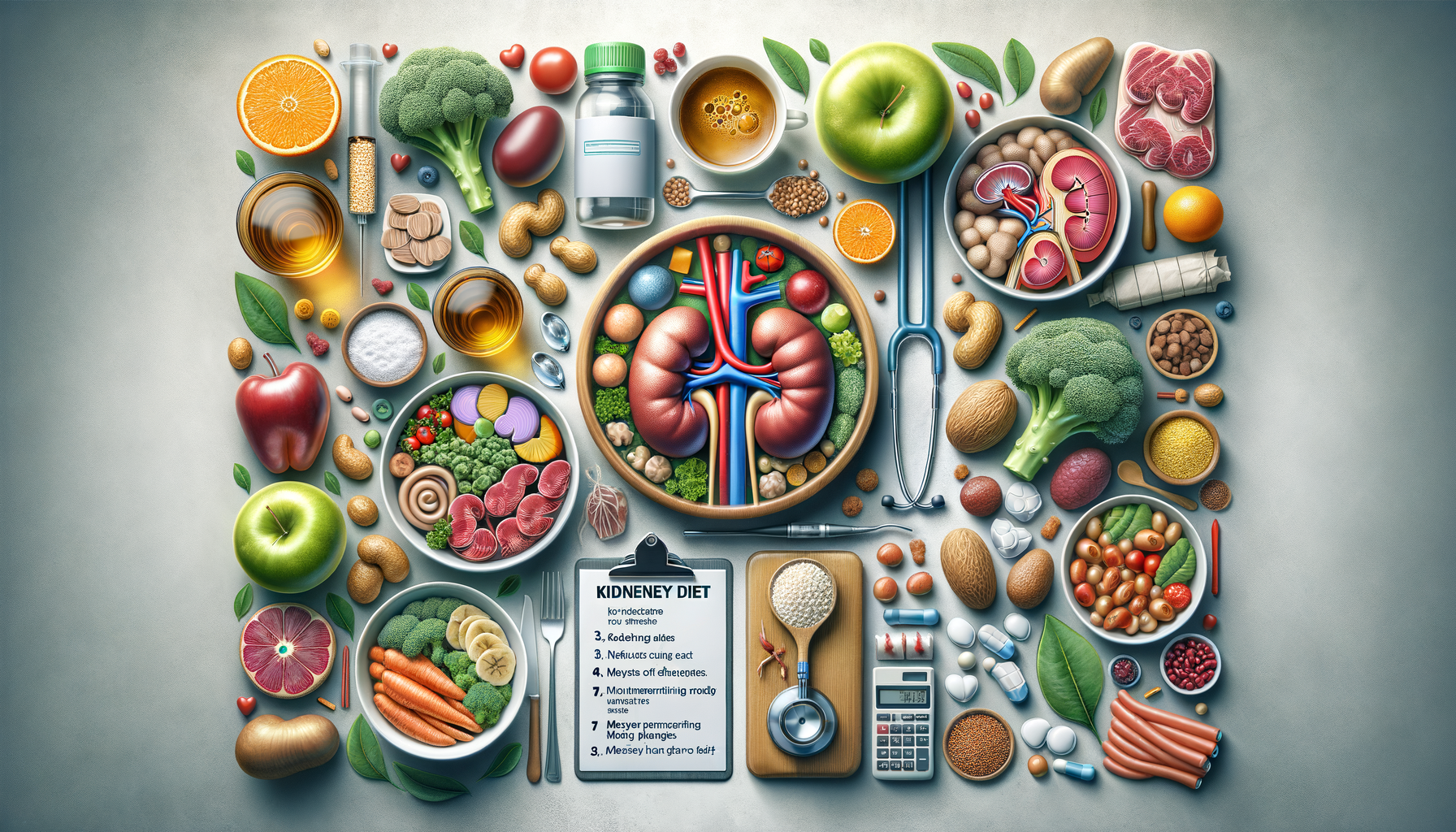Ways a Kidney-Friendly Diet Can Help Seniors with Stage 3 CKD
Can dietary choices influence the well-being of older adults navigating stage 3 chronic kidney disease? Exploring specific food considerations may offer insights into supporting kidney function. Understanding potential dietary approaches could inform decisions for managing this condition.

Understanding Stage 3 CKD and Its Impact on Seniors
Chronic Kidney Disease (CKD) is a progressive condition that affects millions worldwide, with stage 3 indicating moderate kidney damage. For seniors, this stage can bring about significant lifestyle changes and health challenges. The kidneys play a crucial role in filtering waste and excess fluids from the blood, and when their function is compromised, it can lead to a buildup of toxins in the body.
Stage 3 CKD is characterized by a noticeable decrease in the Glomerular Filtration Rate (GFR), typically ranging between 30 to 59 mL/min. This decline in kidney function can result in symptoms such as fatigue, swelling in the extremities, and changes in urination patterns. For seniors, managing these symptoms is vital to maintaining quality of life.
The impact of stage 3 CKD on seniors can be profound, affecting both physical and mental health. Seniors may experience increased risk of cardiovascular disease, anemia, and bone disorders due to impaired kidney function. Additionally, the psychological burden of managing a chronic illness can lead to stress and anxiety.
It is essential for seniors with stage 3 CKD to work closely with healthcare providers to monitor their condition and make necessary lifestyle adjustments. Regular check-ups, medication management, and dietary changes are key components of a comprehensive care plan. By understanding the implications of stage 3 CKD, seniors and their caregivers can take proactive steps to manage the condition effectively.
Key Nutrients to Focus On in a Kidney-Friendly Diet
A kidney-friendly diet is crucial for managing stage 3 CKD, as it helps to reduce the workload on the kidneys and prevent further damage. Key nutrients to focus on include protein, sodium, potassium, and phosphorus, as these can significantly impact kidney function.
Protein intake should be carefully monitored, as excessive protein can strain the kidneys. Seniors with stage 3 CKD should aim for moderate protein consumption, focusing on high-quality sources such as lean meats, fish, and plant-based proteins. Consulting with a dietitian can help tailor protein intake to individual needs.
Sodium is another critical nutrient to manage, as high sodium levels can lead to increased blood pressure and fluid retention. Seniors should aim to limit sodium intake by reducing processed foods and opting for fresh, whole ingredients. Reading food labels and choosing low-sodium options can also be beneficial.
Potassium and phosphorus are minerals that can accumulate in the blood when kidney function is impaired. Seniors should be mindful of foods high in these minerals, such as bananas, potatoes, dairy products, and nuts. A dietitian can provide guidance on appropriate portion sizes and alternative food choices.
By focusing on these key nutrients, seniors can support kidney health and manage stage 3 CKD effectively. A balanced diet, rich in fruits, vegetables, whole grains, and healthy fats, can provide the necessary nutrients while minimizing stress on the kidneys.
Practical Tips for Implementing Dietary Changes and Managing Meal Planning
Implementing dietary changes for stage 3 CKD may seem daunting, but with careful planning and support, it can be manageable and even enjoyable. Here are some practical tips for seniors and their caregivers to consider when adapting to a kidney-friendly diet.
First, it is essential to educate oneself about the dietary restrictions and guidelines associated with CKD. Understanding which foods to limit or avoid can help in making informed choices. Seeking the advice of a registered dietitian can provide personalized recommendations and meal plans tailored to individual needs.
Meal planning is a valuable tool for managing dietary changes. By planning meals in advance, seniors can ensure they have kidney-friendly options readily available. Creating a weekly menu and shopping list can help streamline grocery shopping and reduce the temptation to purchase processed or high-sodium foods.
Incorporating variety into meals is important to prevent dietary monotony. Experimenting with different herbs, spices, and cooking methods can enhance flavor without adding extra sodium or phosphorus. Trying new recipes and exploring different cuisines can make meal times more enjoyable and satisfying.
Lastly, staying hydrated is crucial for kidney health, but fluid intake should be balanced. Seniors should consult with their healthcare provider to determine the appropriate amount of fluids to consume daily, as excessive fluid intake can lead to complications.
By following these practical tips, seniors with stage 3 CKD can successfully implement dietary changes and manage their condition effectively. With the right support and resources, a kidney-friendly diet can become a sustainable and health-promoting lifestyle choice.